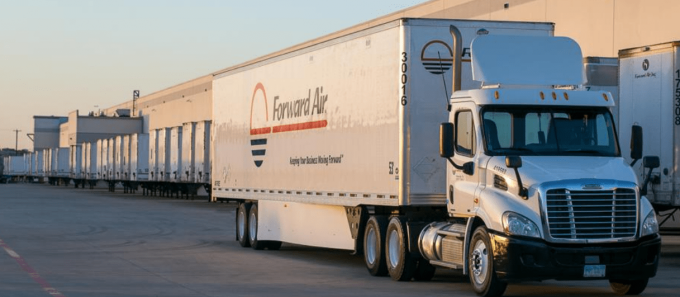'Stable' Asia-Europe rates 'very different' to double-digit declines on transpacific
UPDATED: to included new Xeneta Asia-Europe freight rate data For the first time since the beginning ...

Forward Air has had a bumpy ride in recent months. In December, the trucking firm was the victim of a ransomware cyber-attack that hit its bottom line to the tune of $5.7m.
Management has also received heavy criticism from former executives who had acquired a 6.3% ...

Comment on this article